The week in social: Facebook payments, mobile deep linking, and Conceirge
23 Mar 2015
Aparna Kumar
The week in social
Facebook Messenger debuts friend to friend payments
As speculated, Facebook recently announced that its Messenger app will allow users to conduct friend-to-friend payment. The app now features a “$” sign on the keyboard, to take users to the payments interface. Users will then be promoted to enter a debit card and send money to a friend. Facebook has a team of anti-fraud specialists to monitor for suspicious payments. The social networking site announced that the new feature will be rolled out for Android, iOs, and the Web in the United States in coming months.
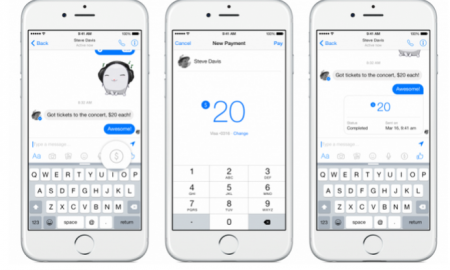
Read more on The Next Web.
Facebook introduces new targeting to help marketers reach people abroad
Facebook has introduced expat targeting worldwide in all its ads interfaces and API. The new targeting option will allow advertisers to target those living with a specific country and expats originating from a specific country. The example given by Facebook is that expat targeting allows businesses to target expats living in Brazil and people born in Brazil but living abroad. The social networking site found success with Etihad Airways who used expat targeting and received a 50x return on investment.
Read more on Facebook Business.
Sosh brings Concierge to New York
This past week, Sosh launched the app Concierge, an app similar to Uber but for dining in New York City. After San Francisco, New York City is the company’s second market. Concierge essentially creates a tasting menu inventory for the Sosh community, and allows users to reserve a table, pay for the prix fixe meal, and request an Uber for the end of the night all through the app. Concierge had a high success rate in San Francisco with zero cancellations and filled every reservation that Sosh partners put on the platform. The company is now focusing on data entry, so it can shorten the process of setting up Sosh in new locations.
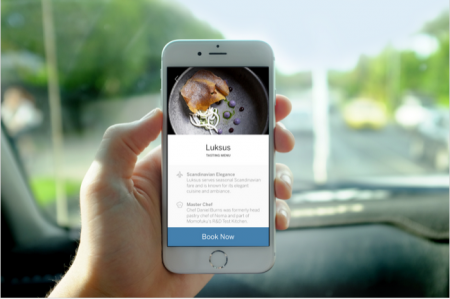
Read more on TechCrunch.
Views behind the Internet in developing nations
The Pew Research Center recently released a study about internet usage in developing countries. The center surveyed more than 36,000 people in 32 emerging countries. Its study revealed that although 64% of people believe in the Internet’s positive influence on educating its citizens, 42% are wary of the negative affect on morality. The study also highlighted social networking usage in these countries. The Philippines had the most adults on social networking sites such as, Facebook and Twitter with 93% of its citizens, while China had the least social networking usage with 58%.
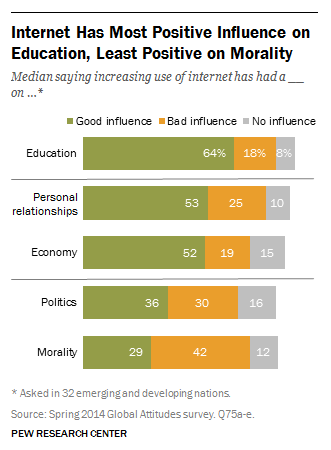
Read more on Pew Research Center.
Kenshoo releases study of Android vs. iOS users
Facebook marketing partner, Kenshoo recently released a study about mobile app ads on iOS vs Android. Key results from the study included that specifically targeting English speaking countries led to more costly ads; that iOs as an operating system was more costly than Android; and iOs users were more likely to download an app after clicking on the ad. The study also revealed that click-through rates (CTR) had fallen at the end of the year, but Android systems had better CTRs than iOs. Kenshoo recommended that marketers should target by country rather than language and that advertises should target iOs and Android systems separately to maximize ad performance.
Read more on Social Times.
Facebook announces new plans for its Messenger App
During this coming week’s FB Developer Conference, Facebook is to announce new features to its Messenger App. This week the company announced Friend-to-Friend payment through the app, but now the company is hinting at opening Messenger to new features, similar to popular messaging apps like LINE and We-Chat. The company is possibly going back to its roots and updating parts of the platform that worked best, such as its gaming central. Facebook could also see potential for businesses to use the app to connect to their consumers and create richer content to be shared on its social network. The FB Developer Conference is set for March 25 -26, 2015.

Read more on TechCrunch.
Introducing mobile deep linking to Bitly
On March 17th Bitly introduced mobile deep linking as part of its Bitly Brand tools and has expanded its business for advertisers to help increase app installs and re-engagements. When users click on the mobile Bitly, they will be asked to either download the app or use the mobile website. According to the launch, 86% of mobile users spend time on apps giving this feature a strong potential for success.
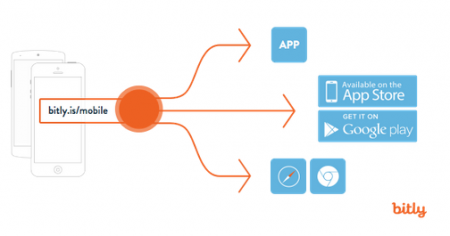
Read more on Bitly.
Kenshoo expands support for Facebook Audience Network
Facebook marketing partner, Kenshoo, expanded its Facebook Audience Network to include custom audiences and lookalike audiences. Creating a custom audience is easy and can be found in Facebook’s Ad Manager by clicking on “Audiences”. The company stated that since tracking cookies on mobile applications is more difficult, this expansion allows advertisers to better connect and convert across various devices and boost mobile advertising performance.
Read more on Social Times
55% of Facebook users access the mobile app
GlobalWebIndex found that Facebook is the most popular social networking site for smartphone and tablet usage and leads the way with 55% of an active user base accessing its app. According to GWI, the reason Facebook is a leader in mobile app usage is because the platform has engrained itself in our normal routines and has become a daily networking behavior for its audience. YouTube and Instagram followed Facebook with 47% app usage and 46% app usage respectively.
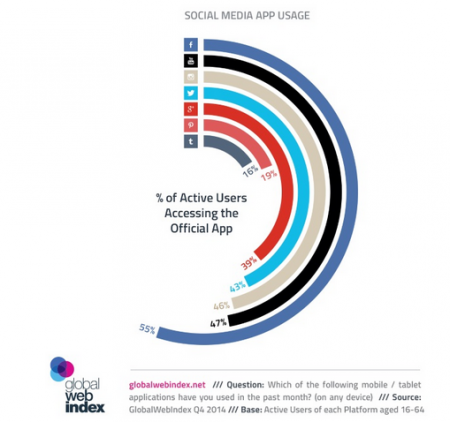
Read more on Social News.
The value of video
Facebook commissioned a Nielsen study to find the value behind a video. The study created a test and control group and found that even before an ad was viewed (under 1 second) users were affected by the ad for ad recall, brand awareness, and purchase consideration. The data showed that the ad created up to 47% of total campaign value for those who watched three seconds or less. As expected, the effect of the ad increased as more of the video was watched.
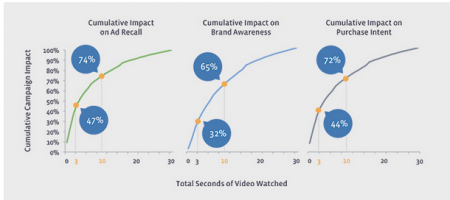
Read more on Facebook.
Vine update for iOs
Twitter has implemented network caching and introduced a new, smaller video file with speed boost and offline support. The app now starts downloading the app’s data before it is opened. The improvements will allow users to view and browse Vines offline. However, users won’t be able to download new Vines until they are back online. The update is currently only available for iOs systems, but the Android update will be coming soon.
Read more on Venture Beat
Twitter makes it easier to report threatening messages
In a continued effort to stop bullying and harassment on Twitter, the company released a new feature that compiles harassment reports and allows users the option of contacting law enforcement. To report a threatening tweet, users can click the “email report” button. However, the company isn’t going to send reports for its users, instead Twitter will recommend contacting local law enforcement if people are concerned about their safety.
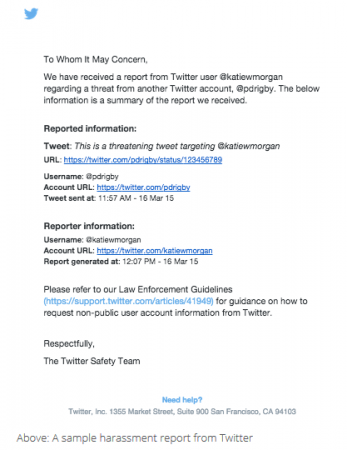
Read more on Venture Beat
LinkedIn acquires Careerify
LinkedIn acquired Toronto based Careerify with the goal of automating the referrals process. The acquisition will help LInkedIn develop a referral service to support companies with finding prospective clients through an employee’s existing contacts and networks, such as LinkedIn, Facebook, and Twitter. The company has not released specific details around the deal.
Read more on The Next Web.